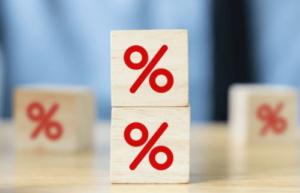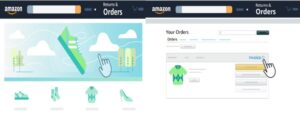What is Payment on Account?
When you start working for yourself as a sole trader, one of the initial benefits is that you do not have to pay tax as money comes in – unlike the PAYE system, in which employees’ earnings have tax deducted at source.
As a self-employed worker, your first tax bill is likely to be due on the 31st January that falls after the end of your first tax year (which runs until 5th April)
That’s where self assessment payment on account comes in. It applies to UK tax payers where less than 80% of your income has tax deducted at source. What that means is the tax deducted from your income before you receive it, an example being where an employer pays an employee under the Pay As You Earn (PAYE) system.
What is payment on account?
This means the first instalment is due on the same day you submit your Self Assessment tax return and clear your bill for the previous year, so it’s important you have enough money set aside.
It’s the system for settling tax owed from the tax return. Payment is spread over two instalments during the year and is calculated based on the previous year’s tax bill. They’re due in two instalments – the deadlines are 31 January and 31 July.
It works on the basis whereby you make an advance tax payment in part. Payment on account applies, potentially, to people in the UK self assessment system.
This is designed to prevent you from being indebted to HMRC. In the event that the tax liability is greater than the previous year, a further balancing payment may also be required.
This may all sound simple but there are many aspects and rules. That’s why we’ve put this post together, to give you a thorough understanding of this process because it can get quite complicated.
When do you need to make payments on account?
If you meet the following two conditions you will be required to make payments on account.
- If your tax liability for the year is greater than £1,000
- Less than 80% of your tax is deducted at source (e.g. via PAYE)
If you meet both of the above then you will be required to make payments on account.
How does HMRC payment on account work and when do I have to pay my
self assessment payment?
The first payment date is midnight on 31 January. That’s prior to the end of the tax year in question. It’s calculated by looking at your previous year’s self assessment payment. The deadline for the second instalment is midnight on 31 July, after the end of the tax year in question.
This spreads your payments out over the course of the year. It helps the Exchequer too. They receive in effect a forward payment by the summer.
Each of your instalments will usually be 50% of your previous tax bill. Consider the following simple, hypothetical example. You owe £50,000 in tax for the first time under self assessment for the 20XX/XX tax year. This is due for payment on 31 January 20XX. You would have to make a first payment on account of £25,000 by 31 January 20XX. Then another £25,000 by 31 July 20XX.
Simple right? Not so unfortunately. Read on because you may need to factor in a “balancing payment”. That may then impact on your payment plan.
My tax bill is lower than last financial year, how to reduce payments on account?
Being self-employed, your income can fluctuate from year to year. If you think that your income for the next tax year will be lower than the previous tax year, you can apply to have reduce HMRC payment on account for your business.
You can reduce payment on account by logging into your online HMRC account or pay my self assessment and clicking ‘Reduce payments on account’. Or, you can send form SA303 to your tax office.
In practice, many people choose to do this if they’re having trouble paying their tax bill. Some reduce their HMRC payment on account, presuming they will be in better financial shape later and that they’ll find it easier to settle the remainder of their bill.
But you should think carefully about this – if your income is the same or higher in the paying self assessment tax next year, you’ll still have to pay the same amount, meaning you’ve only delayed the burden.
And if you reduce your payment on account and it then turns out you’ve underpaid, you’ll have to pay interest on the outstanding amount. This can significantly increase your tax bill.
Your tax advisor/accountant
Your accountant will likely deal with a lot of tax returns on behalf of their clients. Especially in January! cheap accountants east London tax accountants in London east London. If you provide your information close to the deadline then you could end up rushing when collating information and missing out key items from the data you supply. The risk then is a late filing. A situation your accountant might not be able to avoid.


